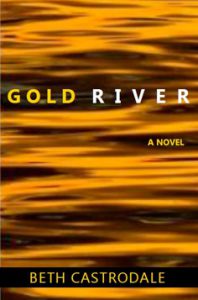Although I recently published my first novel and have had some short stories accepted by journals, I fail far more than I succeed at writing—if success counts as getting a work completed to my satisfaction then accepted for publication.
For now, I’ll put aside the many short stories (and one 300+-page novel) I never finished, or finished then trashed. Instead, let me share some raw statistics about work I tried to get out into the world: I have scored 282 rejections from literary agents in attempts to get various novels published, and one of my stories, a personal favorite, logged 50 rejections before it was finally accepted for publication.
There are more tales of rejection than there are writers. To these, I’ll add some random observations about my own experiences:
- Over time, the sheer volume of rejection has tempered its sting. I’ll never be completely indifferent to rejection, but in general, it hurts a lot less than it used to.
- My mind has mingled writing with distance running, another habit of mine, and another long game. In both cases, I’ve learned to tolerate discomfort and just keep going. Sometimes this feels like foolishness or stubbornness, but maybe those traits are essential to persisting, at least for me.
- As I’ve experienced it, rejection is almost never nasty. 89% of the time, it’s formulaic and businesslike. 10.993% of the time, it’s helpfully specific and/or encouraging. 007% percent of the time, it’s strange to a nearly impenetrable degree. (Here, I’m referring to a single emailed rejection consisting of five lengthy paragraphs that moved from observations about my story that I really tried to understand but couldn’t, to musings that seemed to suggest how flaws in my own character might have led to flaws in my story’s characters. In this case, puzzlement was my protector, mostly.)
- Occasionally, I picture my rejecters—sometimes as individuals, more rarely as committees. For some reason, they always occupy sterile, fluorescent-lit offices, never afghaned sofas, snack-laden kitchen tables, twilit country porches, or other places of comfort—perhaps because of the prevailing impersonality of rejection?
- Occasionally, I imagine a certain description or phrase from one of my stories (which particular description or phrase, I’ll never know) prompting a grumble or grimace, then a toss into the reject pile.
- More and more, when I myself “toss” something into the reject pile—a book, TV show, or movie, maybe one that was highly recommend to me—I sense my rejecters in me, and vice versa. I’d like to think that over time, I’ve become more understanding of them, and of the myriad possible differences in taste and sensibility.
- For me, rejection has become a kind of dark companion (shadow?)—something I know I must live with as long as I write. Not so bad, considering the far worse things I could be forced to live with. And on those rare occasions when I get helpful comments or encouragement, rejection is something better than awful.
I’m glad that over the past few years, there’s been a lot more attention to, and writing about, the necessity—even the benefits—of failure, and of persistence in spite of it. For example, many observers have pointed out how failure is essential to success. It can offer valuable lessons and open up new possibilities.
I’m also glad that although failure and rejection have sometimes depressed me, I’ve never been ashamed of them. When rejection-related depression settles over me, stubbornness (my flaw? my savior?) kicks in eventually, and I launch more work into the void.

So true! Thank you, Beth.
You’re most welcome, Daphne. It was kind of cathartic to write this.
Such rich and helpful observations! Thank you, Beth!
Thanks for your kind comment, Beth.